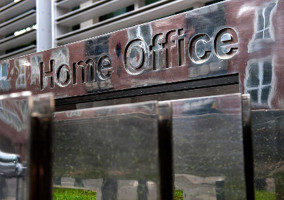Charities will need to tell the Charity Commission if they get any funding from overseas sources, as part of a government's approach to tackling extremism, according to documents published yesterday.
The Home Secretary, Amber Rudd, made the announcement yesterday to Parliament yesterday following a review of the funding for Islamist extremist activity. The full review has not been published for national security reasons.
In a written statement outlining the main findings, Rudd said: "Some Islamic organisations of extremist concern portray themselves as charities to increase their credibility and to take advantage of Islam’s emphasis on charity. Some are purposefully vague about their activities and their charitable status.
As part of the measures to tackle the problem she said:“The Charity Commission will be introducing a requirement on charities to declare overseas funding sources.
“The Commission has been discussing this issue with charities over recent months.”
She also said that the Home Office is “strengthening” its work with the Commission, “which includes addressing the abuse of charities for terrorist or extremist purposes as one of its strategic priorities”.
Change to annual return
The Commission has confirmed that it will be making changes to the annual return to gather the information.
Charities have ten months from the end of their financial year to file their annual return. The Commission has been developing a new online service for this year, and expects to launch by 31 August.
A spokeswoman said: “Following our consultation in December 2016 on the purpose and content of the annual return 2017, we will be asking charities to state whether they have received funds from overseas, and if so, to set out the source and amount of income received from overseas.
“This change is part of our wider work to align the charity's annual return with the strategic risks facing charities and to ensure that charities are only asked to respond to question areas that are relevant to their work. Most respondents (83 per cent) to a consultation we held last year on developments to the annual return agreed that we should take a risk-based approach. This is information that the public would expect a modern, risk-based regulator to hold on charities, and to make available for the purposes of accountability and transparency.
“Our plans to do this were already being proposed and developed before some of the issues raised by the government’s extremism funding review were highlighted. Charities are already required to declare their overseas expenditure.
“Since our consultation on the purpose of the annual return, we have engaged in more detailed discussions with sector organisations about the wording of proposed questions, to help ensure charities understand the questions and how they will be expected to respond. We plan to make the annual return for 2017 available towards the end of the summer.”
When the consultation opened in December there was no specific reference to funding from overseas, but did say that the Commission planned to ask more relevant questions targeted at different types of charity.
The consultation closed in the spring and representative bodies raised concerns that some of the changes exaggerated the risks faced by charities.
NCVO, the Charity Finance Group and the Association for Charitable Foundations wrote a joint letter to “highlight some overarching concerns” and calling for more commentary about why different bits of information were being asked for.
Related articles











